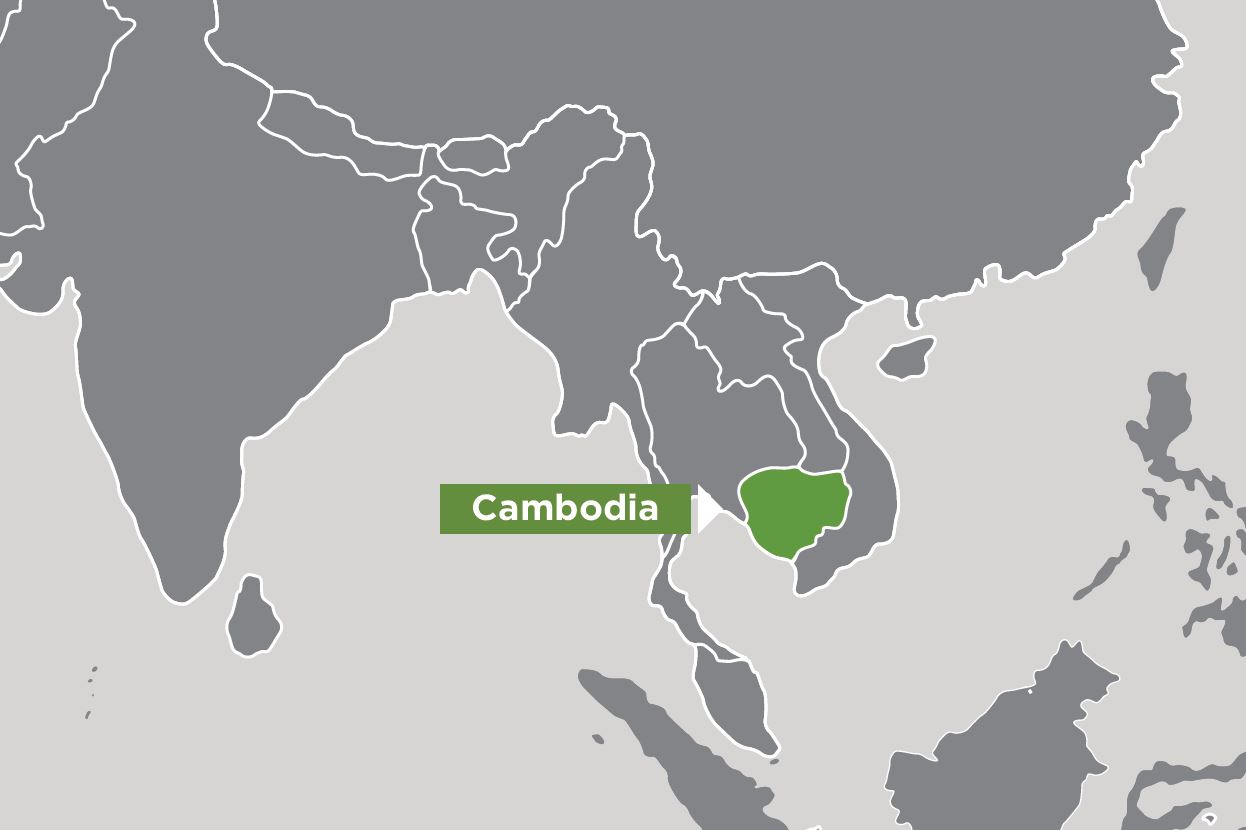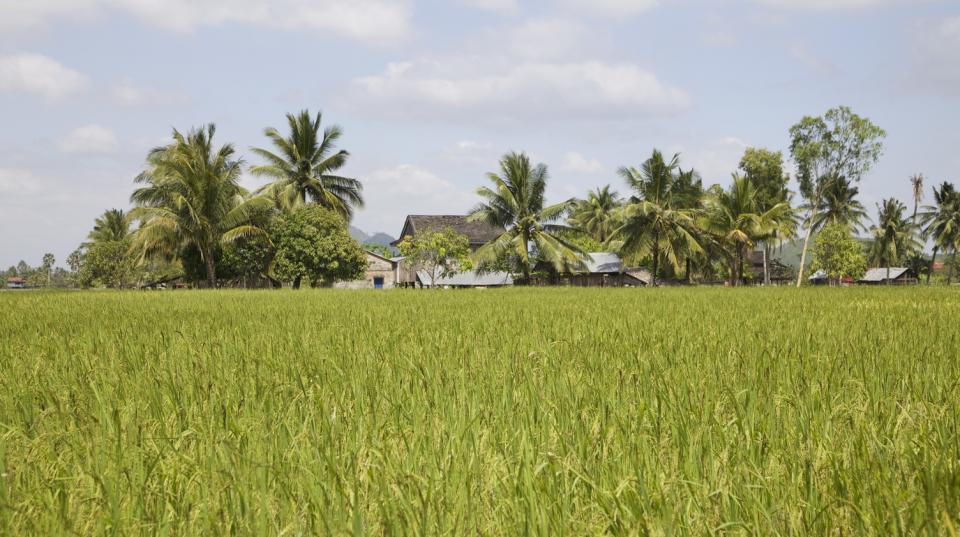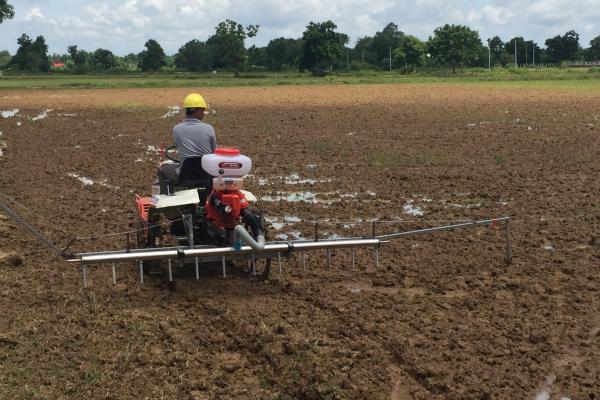Overview
This project aimed to increase the adoption of new technologies for sustainable intensification and diversification (SID) in the lowland rice system in north-west Cambodia, contributing to increased income for farmers and stronger businesses that are more sustainable and resilient.
North-west Cambodia is home to nearly half a million farming families, with mostly small or medium-sized farms. Generally, one rice crop is grown per year in the region’s rainfed lowlands. Where irrigation is available, two rice crops can be grown per year.
Low rice yields and frequent crop failures have disheartened many farmers in the region, forcing them to seek employment in towns and cities. But by intensifying and diversifying farming in the rainfed lowlands, farmers could increase crop yields and produce high-value crops such as vegetables.
The project looked at the many challenges holding back adoption of innovative intensification and diversification of crop production methods. These include biotic and abiotic crop yield constraints, inadequate availability of rice seed of suitable varieties and lack of market access for non-rice crops, plus compounding capacity constraints on skills, knowledge and training.
Expected project outcomes
- More sustainable rice farming systems in north-west Cambodia, providing avenues for intensification (through more crops per year) as well as diversification into higher value crops, resulting in higher incomes for family farmers.
- Collaboration with private sector input and machinery service sectors as well as the public sector to provide an ideal pathway for extension of the ideas far beyond the life of the project.
- Greater capacity among local institutions to carry out socioeconomic surveys, farm-based and simple laboratory studies from the more established CARDI, SFSA, GAU and Australian universities.
- Farmers encouraged to practise sustainable and profitable rice and rotation crop production, helping to reduce the frequency of crop failures and increase food security in north-west Cambodia.
- Farm SID benefiting small and medium farmers, especially women, through: reductions in time spent on manual farm work, freeing up time to engage in other types of employment; higher off-farm income to enable better education opportunities for children; and crop diversification providing more diverse and nutritious diets for women and children.







